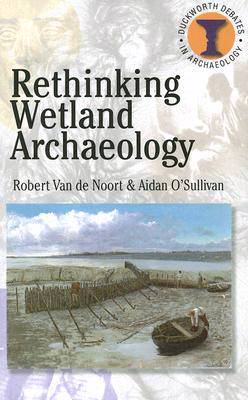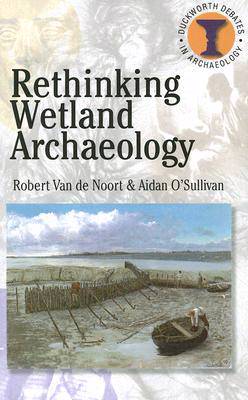
- Afhalen na 1 uur in een winkel met voorraad
- Gratis thuislevering in België vanaf € 30
- Ruim aanbod met 7 miljoen producten
- Afhalen na 1 uur in een winkel met voorraad
- Gratis thuislevering in België vanaf € 30
- Ruim aanbod met 7 miljoen producten
Omschrijving
This series of short volumes, each devoted to a theme, which is the subject of contemporary debate in archaeology, ranges from issues in theory and method to aspects of world archaeology. Wetland archaeology has provided some of the most exciting discoveries in world archaeology, from bog bodies in northern Europe, to prehistoric and medieval wetland dwellings in central and western Europe, New Zealand, Japan and the Pacific Northwest. Arguably, however, the amount of evidence from these sites and the need for intense multidisciplinary scientific analysis, allied to a general tendency towards empiricist research, has led to wetland archaeology being isolated from current theoretical debates. "Rethinking Wetland Archaeology" shows how wetland studies can be contextualised within broader geographical, cultural and theoretical frameworks. It discusses how wetland archaeological discoveries can be understood in terms of past people's perception and understanding of landscape, which was not only a source of economic benefit, but a storehouse of, and a metaphor for, cultural values and beliefs.It argues that archaeologists interested in the temporal rhythms of life, and in cultural biographies of place and objects, should look again at the astonishingly detailed narratives produced by wetland archaeology. Finally, it considers the past and future role of wetland archaeologists in contemporary political and social discourses.
Specificaties
Betrokkenen
- Auteur(s):
- Uitgeverij:
Inhoud
- Aantal bladzijden:
- 144
- Taal:
- Engels
- Reeks:
Eigenschappen
- Productcode (EAN):
- 9780715634387
- Verschijningsdatum:
- 16/03/2006
- Uitvoering:
- Paperback
- Formaat:
- Trade paperback (VS)
- Afmetingen:
- 138 mm x 214 mm
- Gewicht:
- 208 g

Alleen bij Standaard Boekhandel
Beoordelingen
We publiceren alleen reviews die voldoen aan de voorwaarden voor reviews. Bekijk onze voorwaarden voor reviews.











